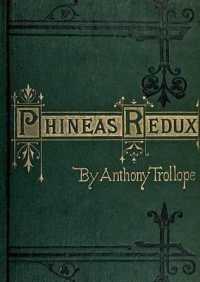- ホーム
- > 洋書
- > 英文書
- > History / World
Full Description
Take a seat on the front lines of the past, and experience history and the evolution of Western thought from the perspectives of everyday citizens, prominent public figures, celebrated authors and philosophers, and more. This collection of over 400 primary sources -- with introductory essays to help you get the most out of each reading, and review questions to help you check your understanding -- emphasizes the intellectual history and values of the Western tradition. Sources are grouped around important themes in European history, including developments in intellectual and religious thought, warfare, revolution, and socio-economic change. And because history is always in the making, you'll also find essays on current topics and vexing issues that you read about in the news, including the European Union, ISIS, and Muslim immigration in Europe.
Contents
VOLUME I
Part I: THE ANCIENT WORLD.
1. The Near East.
Epic of Gilgamesh: Mesopotamian Protest against Death -- Poem of the Righteous Sufferer: Forsaken by the Gods. Mesopotamian Concepts of Justice -- Code of Hammurabi. Divine Kingship in Egypt -- Hymns to the Pharaohs; Guidelines for the Ruler. Religious Inspiration of Akhenaten -- Hymn to Aton. Empire Builders: The Assyrians and Persians -- Inscription of Tiglath-Pileser I; Fusion of Cultural Tradition in Persian Empire. The Myth-Making Outlook of the Ancient Near East -- Lament for Ur.
2. The Hebrews.
Hebrew Cosmogony and Anthropology -- Genesis. Human Sinfulness -- Genesis, The Origins of Sin. The Covenant and the Ten Commandments -- Exodus, The Covenant; Exodus, The Ten Commandments. Humaneness of Hebrew Law -- Exodus, Crime and Punishment; Leviticus, Neighbor and Community; Deuteronomy, Judges, Witnesses, and Justice. God's Greatness and Human Dignity -- Psalm 8; Psalm 104. The Age of Classical Prophecy -- Amos and Isaiah, Social Justice; Isaiah, Peace and Humanity.
3. The Greeks.
Homer: The Educator of Greece -- Homer, The Iliad. Lyric Poetry -- Sappho, Love, Passion, and Friendship. The Emancipation of Thought from Myth -- Hippocrates, The Sacred Disease: The Separation of Medicine from Myth; Thucydides, Method of Historical Inquiry; Critias, Religion as a Human Invention. Human Excellence and Weakness: Humanism and Hubris -- Pindar, The Pursuit of Excellence; Aeschylus, Hubris. The Persian Wars -- Herodotus, The Histories. Athenian Greatness -- Thucydides, The Funeral Oration of Pericles. The Status of Women in Classical Greek Society -- Euripedes, Medea; Aristophanes, Lysistrata. The Peloponnesian War -- Thucydides, The Melian Dialogue and the Revolution at Corcyra. Socrates: The Rational Individual -- Plato, The Apology. Plato: The Philosopher-King -- Plato, Epistle VII; Plato, The Republic. Aristotle: Ethical and Political Thought -- Aristotle, Nicomachean Ethics; Aristotle, Politics. Hellenistic Culture: Rationalism, Universalism, and Individualism -- Plutarch, Cultural Fusion; Plutarch, Alexander and Cultural Fusion; Epicurus, Self-Sufficiency; Philo Alexandria, Jewish Appreciation of Greek Culture and Synthesis of Reason Revelation.
4. The Roman Republic.
Rome's March to World Empire -- Polybius, The Roman Army; Frontinus, Enforcing Discipline. The Punic Wars -- Livy, The Second Punic War: The Threat from Hannibal; Appian of Alexandria, The Third Punic War: The Destruction of Carthage. The Spread of Greek Philosophy to Rome -- Lucretius, Denunciation of Religion; Cicero, Advocate of Stoicism; Cato the Elder, Hostility to Greek Philosophy. Roman Slavery -- Diodorous Siculus, Slaves: Torment and Revolt; Appian of Alexandria, The Revolt of Spartacus. Women in Republican Society -- Quintus Lucretius Vespillo, A Funeral Eulogy for a Roman Wife. The Decline of the Republic -- Plutarch, Tiberius Gracchus; Cicero, Justifying Caesar's Assassination; Dio Cassius, In Defense of Caesar and Monarchy; Velleius Paterculus, The Triumph of Octavian; Sallust, Moral Deterioration.
5. The Roman Empire.
The Imperial Office -- Tacitus, The Imposition of One-Man Rule. Imperial Culture -- Virgil, The Aeneid; Ovid, Art of Love; Quintilian, The Education of an Orator; Juvenal, The Satires. Roman Stoicism -- Seneca, Stoic Humanitarianism; Marcus Aurelius, Meditations; Musonius Rufus, Enlightened Lectures on Women. Roman Law -- Justinian, Corpus Iuris Civilis. The Roman Peace -- Aelius Aristides, The Roman Oration: The Blessings of Pax Romana; Tacitus, The Other Side of The Pax Romana; Josephus, "nor does fear frighten them." Third-Century Crisis -- Dio Cassius, Caracalla's Extortions; Petition to the Emperor Philip. The Demise of Rome -- Ammianus Marcellinus, The Battle of Adrianople; Salvian, Political and Social Injustice; Saint Jerome, The Fate of Rome; Pope Gregory I, The End of Roman Glory.
6. Early Christianity.
The Teachings of Jesus -- The Gospel According to Saint Mark; The Gospe








